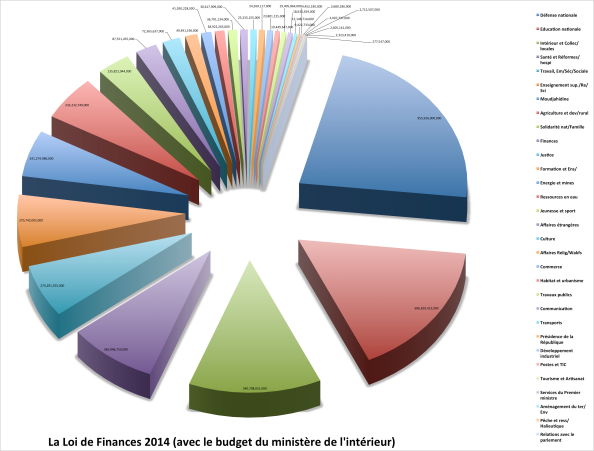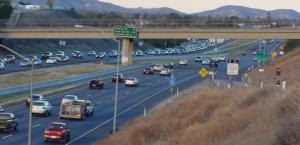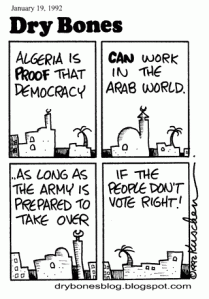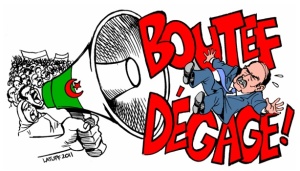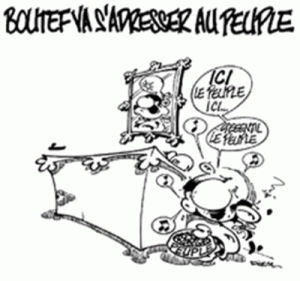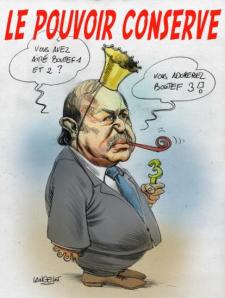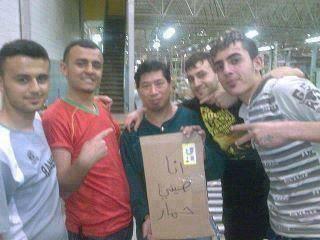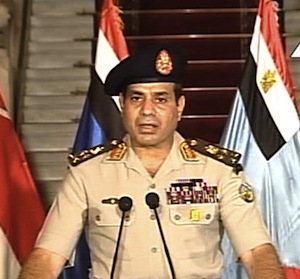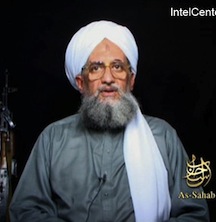What’s the matter with Egypt’s liberals?
By Max Fisher, Updated: August 12, 2013
The narrative arc of Egypt’s liberal movement, just two years ago a remarkable story of overcoming impossible odds and helping to oust President Hosni Mubarak, has since taken a turn toward tragedy of its most classical form. The hows and whys are complicated, but the movement’s setbacks, at times self-inflicted, have been tougher to ignore since the July 3 coup that removed President Mohamed Morsi. Many of them have so enthusiastically embraced military rule – and, at times, violence against Morsi’s Muslim Brotherhood supporters – that observers are wondering whether Egypt’s liberals can still really be considered liberals.
Just today, The Washington Post’s Bill Booth and Sharaf Al-Hourani report from Cairo that Egypt’s liberals are pushing for the military government to crack down on the Muslim Brotherhood’s sprawling – and child-filled – protest camp in downtown Cairo. The liberals, including the movement’s political leaders, “make these calls knowing that a crackdown by the military or police against a committed, cohesive, religiously inspired opponent could lead to bloodshed,” Booth and al-Hourani write.
To me, the movement is starting to look less driven by liberalism than by secular nationalism, hardly a force unique to Egypt but one that has a deep history here, including under Mubarak’s reign. Many have pointed to parallels with the rise of Egypt’s first nationalist military leader, Gamal Abdel Nasser, in the 1950s. Vendors in liberal-dominated protest areas of Cairo have been selling posters of the new military ruler, General Abdel Fata el-Sissi, alongside posters of Nasser and his successor Anwar Sadat (but not of Sadat’s successor, Mubarak; maybe it’s still too soon). The world has something of an ugly history with nationalist movements that celebrate autocratic military rulers and back state violence against fellow citizens, so people are naturally worried.
The Council on Foreign Relations’s Steven Cook, a passionate and long-time observer of Egypt, has written a forceful and important entreaty to the Egyptian liberal movement, charting its missed opportunities since February 2011. That initially included, he writes, “revolutionary navel-gazing that distracted the civil/secular/alleged liberal groups from doing the kind of political organizing that was necessary” as well as “an ongoing sacralization of the uprising and its many different leaders, which made it beyond the pale to offer any kind of critical analysis of those eighteen days [in early 2011] or its aftermath.”
The “civil/secular/alleged liberal” movement, as Cook calls it, doesn’t appear to be behaving much differently this time around than it did in mid-2011, after Mubarak fell. It’s not organizing politically, although this is its second opportunity to do so in just three years. But maybe most worrying, as Cook writes, is that some of the groups “have made common cause with remnants of the old regime and the military,” which he warns “undermines their claims to be democratic” and makes them “potential pawns in a game that anti-revolutionary forces are playing aimed at restoring some semblance of the old order.”
I wrote Steven to ask him what pushed him over the edge, to write his constructive but frank criticisms of Egypt’s liberals, and why it’s become so controversial within Egypt to even hint at potential criticisms of the movement, most notably by calling the July 3 ouster of Morsi a “coup.” Here’s his response, which he kindly agreed to let me publish:
The alleged liberals have been making me a bit nutty for a while. Last spring I wrote a post called “Egypt: The Art of Being Feckless” so it’s been a theme for a little while.
What pushed me over the edge was the coup, but it goes back to the immediate period after the uprising when these guys either couldn’t or wouldn’t do the political work necessary. Instead, they kept going out into the streets. Morsi was obviously no democrat. He had made a mockery of the revolutionary promise of Tahrir Square, but so did the liberals — at least the ones who supported him (how could they not know what the [Muslim Brotherhood members] were up to?!?!) because they themselves failed. The presidential election had not a single candidate that represented the revolution or liberal ideas. That is telling. Now these folks have welcomed the army back. These are very bad choices.
Indeed, you couldn’t question the revolution. Suddenly, all the people who had wanted a better Egypt were acting like Bolsheviks. Now, they say that the army’s intervention is a course correction and that it will be good for democracy. In one sense, they are correct. Morsi and the MB were working hard to institutionalize their power, which was going to make it hard to dislodge them in the future, but the alleged liberals are now back to where they were during the Mubarak period: In a choice between the authoritarianism of the regime (in this case what might shape up to be some semblance of the old order) and the Muslim Brotherhood, the liberals will choose the army. The spokesman for [Salafist political party] al Nour told me in December 2011, “You watch, when the religious do well the liberals will run to the army.” He was dead on!
Also, the calls for revenge against the MB by some liberals makes the hair stand up on the back of my neck. Don’t get me wrong, I have always been deeply suspicious of the MBs. I thought we couldn’t make a real judgement until they actually had an opportunity to govern, but based on everything I read and know about their history, I was not inclined to believe that they would be a force for democracy.
I think Amr Hamzawy and Hossam Bahgat are the only true liberals in Egypt.
The comparison of Egypt’s liberals to such ideological movements as Bolshevism is not as unusual as you might think. The New York Times’ Cairo bureau chief David Kirkpatrick, speaking on NPR a few weeks ago, compared the post-coup mood in Egypt to that of Europe in the early 20th century when it was reshaped by ultra-nationalism. “It’s how I imagine Europe in the first part of the 20th century might have felt during the rise of fascism,” he said. “It may not last. It may be just a momentary national hysteria, but at the moment there is a surreal-seeming enthusiasm for the military … even by people who just a few months ago were calling for the end of military rule.”
That doesn’t mean that el-Sissi is about to invade the Sudetenland, of course. Plenty of nationalist movements have arisen over the past century without leading to anything so dramatic, but they are rarely anything resembling liberal. But those echoes are a reminder that nationalist movements are driven from the bottom-up as well as the top-down.
Egypt, Wake Up!
by Steven A. Cook
August 12, 2013Supporters of deposed Egyptian President Mohammed Morsi listen to a speech during a protest in Cairo (Suhaib Salem/Courtesy Reuters).
In recent weeks I have written a bit about how developments in Egypt are reminiscent of the 1950s. Over the last five weeks, the historical parallels have been, at times, uncanny to the Free Officers’ crackdown on the Muslim Brotherhood beginning in October 1954. I stand by that work, but now I am beginning to believe that in at least one respect, the summer of 2013 is a lot like the summer of 2011. Those who have been following Egypt will remember two years ago when activists staged a the three week-long Tahrir sit-in and there were seemingly endless “Fridays of ….” including:
- Friday of Purging the Remnants of the Mubarak Regime from Egypt
- Friday of Renewing the Revolution and in Memory of the Martyrs
- Second Friday of Anger
- Friday of Retribution (aka “Ministry of Interior Purification Friday” or “Honoring the Martyrs’ Rights Friday”)
- Friday of Determination
- Friday of Last Warning
- Friday of Decision
- Friday of Unity
- Friday for the Love of Egypt
- Friday of Correcting the Path
- Friday to Reclaim the Revolution
During that summer there were also the demands to bring Hosni Mubarak to trial and the attendant protests once he was in the dock as well as an ongoing sacralization of the uprising and its many different leaders, which made it beyond the pale to offer any kind of critical analysis of those eighteen days or its aftermath.
This was of course all revolutionary navel-gazing that distracted the civil/secular/alleged liberal groups from doing the kind of political organizing that was necessary when parliamentary elections rolled around in late November and early December of 2011. These same groups do not seem to have learned much from that moment, setting themselves up to underperform once again.
It’s been a busy summer in Egypt: military intervention, a Muslim Brotherhood sit-in (for five weeks and counting) at Rabaa al Adawiya Mosque that the government is vowing to break up, the July 26 March against violence and terrorism, actual violence and terrorism in the Sinai Peninsula, revisions to the disputed December 2012 constitution, and tumult within the Zamalek football (soccer) club along with a host of economic problems that have not gone away since the military pushed Mohammed Morsi from power. That’s enough for a few years, but it’s all happened—with the exception of the Sinai problem, which has been ongoing—since July 3. The Egyptians with whom I have spoken recently are tired. They have been riding the exhilarating peaks and depressing troughs of the uprising for thirty months. In the words of one friend, “We need a break. Just for one month.”
Put down the Twitter. Turn off the talk shows. Get back from the North Coast. Put a hold on blogging. Get to work organizing. In case anyone has not noticed, the clock is ticking. It’s mid-August. Before anyone blinks it will be Eid al Adha in mid-October and then the political season will begin. The military has begun a political process in which there will be elections sometime between January and April of next year
Defense Minister Abdelfattah al Sisi is not likely to accede to last minute appeals from civil/secular/alleged liberal groups for more time. Under his predecessor, Field Marshal Hussein Tantawi, the Supreme Council of the Armed Forces delayed elections because the new political organizations—and the Obama administration—pleaded to give them more time to build, in the parlance that democracy promoters love, “capacity.” Virtually everyone feared that the Muslim Brotherhood and the defunct National Democratic Party, apparently rising from the dead, would use their superior organizational skills to win/buy votes and thereby dominate the People’s Assembly. The only thing the extra time did was create an environment in which the very same people who had petitioned the military for more time denounced the officers for wanting to hold onto power indefinitely, culminating in calls for the Field Marshal’s death in late November 2011. When the elections took place, the feloul were shut out, but the Brothers and the Salafis of al Nour did very well together garnering 65 percent of the 498 seats, and the civil/secular/so-called liberal groups securing 15 percent. Not bad, but it was clear they did not have a broad appeal.
The Muslim Brotherhood’s egregious mistake and the military’s intervention have for better or worse given the groups that did not do well during the 2011-12 parliamentary elections a new opportunity at the ballot box. There is no evidence that they are doing anything about this new lease on life provided courtesy of the Egyptian armed forces. It’s entirely unclear if anyone on the non-religious end of the political spectrum is doing any political work or merely relying on the fact that the Brothers so botched their time in office that they will be a non-factor in politics for some time. Maybe. Their supporters seem highly motivated. Even if the Brotherhood says now that it will not legitimate the political process resulting from a coup, or the military makes good on its promise to clear the area around the Rabaa al Adawiya mosque, who knows what will happen in six or nine months.
The fact that some revolutionary groups and democracy activists, who claim to be liberal, have made common cause with remnants of the old regime and the military undermines their claims to be democratic. It also makes them—if they are not careful—potential pawns in a game that anti-revolutionary forces are playing aimed at restoring some semblance of the old order. This effort is likely not as organized as some media reports might suggest, but no one can deny that that there are groups embedded within the state who want nothing more than to roll back the uprising. This is all the more reason to get out on the hustings to convince Egyptians that they have something new and appealing to offer. If they do not, Egypt’s democrats will soon discover that their allies of the moment will not look all that different from their adversaries of the past.
